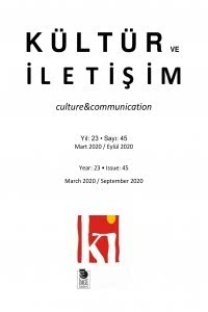İletişim Alanında Yöndeşme Eğilimleri: Teknoloji, Pazar ve Düzenleme
Yöndeşme, son on yıl içinde medya endüstrisinde süregelen değişimlerin tanımlanmasında sıkça kullanılan bir kavramdır. Çalışmanın genel yaklaşımı itibariyle yöndeşmenin, yalnızca içeriğin üretim, dağıtım ve tüketiminde yeni yollar sunan teknolojik bir olgu olmadığı, aynı zamanda medya ekonomisiyle ve düzenleyici yapılarla yakın ilişki içinde olduğu savunulmaktadır. Bu bağlamda, yeni eğilimlere ilişkin genel bir çerçeve çizmenin ötesinde yöndeşmenin teknoloji, pazar ve düzenleme ekseninde yarattığı sorun alanlarına odaklanılmaktadır. ilk bölümde, her tür enformasyonu yöndeştiren ve içeriğin farklı şebekeler üzerinden iletimine izin veren iletişim teknolojileri temel alınmıştır. ikinci bölüm, ekonomik yöndeşme, küresel medya endüstrisi ve kamu hizmeti yayıncılığının gerileyişi gibi konulara odaklanmaktadır. Son bölümde ise düzenleyici yöndeşme, varolan düzenleyici yapıların ve politikaların sorgulanması bağlamında tartışılmıştır.
Anahtar Kelimeler:
yöndeşme, teknoloji ve düzenleme, kamu hizmeti yayıncılığı
Convergence Trends in the Field of Communication: Technology, Market and the Regulation
The concept of convergence has been frequently used for defining the continual changes in the media industries in recent years. The basic approach of the study is that convergence is not only a technological fact which serves new ways of producing, distributing and consuming of content but also closely linked to media economics and regulatory structures. In this context, beyond drawing a general framework for the new tendencies, the study focuses on the problematic fields which caused by the convergence in the levels of technology, market and the regulation. The first part of the study is about developments in the communications technologies which have led to a convergence at the all forms of information and permitted to transmit across all types of networks. The second part focuses on economic convergence and other related issues such as the communications deregulation, global media industry and the regression of public service broadcasting. In the final part, regulatory convergence is argued in the context of questioning the existing regulatory structures and policies
___
- Acxiom Corporation, www.acxiom.com.
- Adaklı, Gülseren (2006). Türkiye'de Medya Endüstrisi: Neoliberalizm Çağında Mülkiyet ve Kontrol İlişkileri. Ankara: Ütopya.
- Autorità per le Garanzie nelle Comunicazioni, www.agcom.it.
- Avrupa Komisyonu (1997). Green Paper on the Convergence of the Telecommunications, Media and Information Technology Sectors and the Implications for Regulation: Towards an Information Society Approach. COM (97)623.
- Avrupa Konseyi (1997). Draft Treaty of Amsterdam: Protocol on the System of Public Broadcasting in the Member States. O.J. C340/109. Brüksel.
- Başaran, Funda (2003). "Telekomünikasyon Politikaları: Avrupa Birliği ve Türkiye." Avrupa Birliği ve Türkiye'de İletişim Politikaları. Mine Gencel Bek (der.) içinde. Ankara: Ümit. 165-204.
- Başaran, Funda ve Haluk Geray (der.) (2005). İletişim Ağlarının Ekonomisi: Telekomünikasyon, Kitle İletişimi, Yazılım ve İnternet. Ankara: Siyasal.
- Blackman, Colin R. (1998). "Convergence Between Telecommunications and Other Media." Telecommunications Policy 22(3): 163-170.
- Cave, Martin vd. (2004). "Regulating the BBC." Telecommunications Policy 28(3-4): 249-272.
- ISSN: 1301-7241
- Yayın Aralığı: Yılda 2 Sayı
- Başlangıç: 1998
- Yayıncı: İmge Kitabevi Yayınları
Sayıdaki Diğer Makaleler
İletişim Alanında Yöndeşme Eğilimleri: Teknoloji, Pazar ve Düzenleme
Kurtlar Vadisi-Irak ve Erkek Egemen Cinsiyet Rejiminde İktidar(sızlık)
Sinemasal Yüce: Felaket Filmlerinde Yüce Arayışı
Medyanın Ege'deki Kirli Dansı: Kardak Krizi'nin Türk Basınında Sunumu
Manuel Castells'le Söyleşiler, Manuel Castells ve Martin İnce
En Son Babalar Duyar Dizisinde Geleneksel Baba Otoritesinin Temsil Edilişi ve Sorgulanışı
Karakter Aşınması: Yeni Kapitalizmde İşin Kişilik Üzerine Etkileri, Richard Sennett (2002)
Popüler Kültür Ürünü Olarak Durum Komedileri: Çocuklar Duymasın Örneğinde Aile Söylemi
